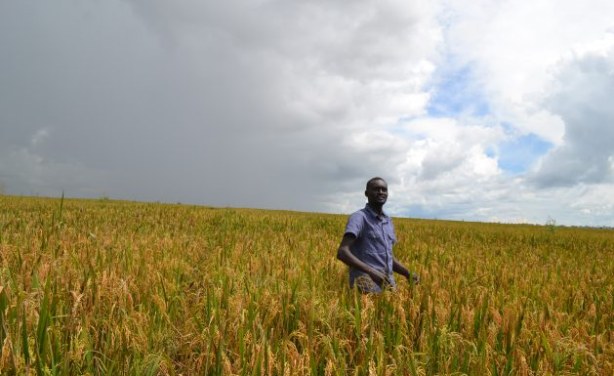-
East Africa: Scientists Draw Up Guidelines to Help Agri-Food Companies Align With 2030 Agenda
IPS, 23 September 2020
In Amuru district, 47 kilometres from Gulu town in northwestern Uganda, the Omer Farming Company has proven that it is possible to farm on thousands of acres of land using methods… Read more »
-
Uganda: Shs148 Billion Earmarked for Irrigation
Monitor, 28 September 2020
T he Agriculture ministry has said $40m (about Shs148 billion) has been earmarked for the first phase of micro-scale irrigation programme to boost production among small holder… Read more »
-
Uganda: Tanzania, Kenya, Uganda Agribusinesses Secure Sh5 Billion Grants
Citizen, 13 May 2020
A five-year multicountry project for Tanzania, Kenya and Uganda is investing 2 million Euros (about Sh4.96 billion) in grants to 14 Agri businesses in the three countries. Read more »
-
Tanzania: Embrace Agri Tech to Boost Output, Farmers Told
Daily News, 23 June 2020
FARMERS have been advised to use the best seeds and modern agriculture technologies to boost food output and surplus for business, which will increase the family income and raise… Read more »
Uganda Lessens Carbon Footprint to Meet 2030 Development Goals
In Amuru district in northwestern Uganda, the Omer Farming Company has proven that it is possible to farm on thousands of acres of land using methods that conserve the environment and its biodiversity. On 5,000 acres, the company is growing upland rice with a yield of up to 3.5 metric tons per acre, using the conservation-agriculture method. Dominic Kimara, the company's farm manager has said that no ploughing takes place and no fertilisers are used. Instead, a leguminous crop known as sunn hemp is grown, and when it is 50% flowering, it is rolled on the soil to decompose and form green manure. According to the Food and Agriculture Organisation of the UN, this type of farming technique has several advantages for the environment because it reduces the use of farm machinery which often emits carbon. The 2030 agenda refers to sustainable development goals adopted by all UN member states in 2015, these goals are a universal call to action to end poverty, protect the planet and improve the lives and prospects of all citizens.


